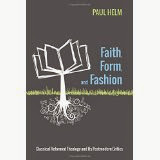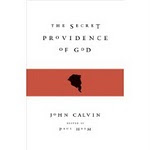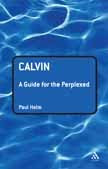The Council of Nicaea - The SistineChapel
At a time when
Christian people are taken up with issues of human conduct and gender, and it
seems that doctrine of God has been left behind, it is a great thing that
people are discussing the Trinity. This post is about what sort of documents
creeds and confessions are. I am chary about imputing to them a finality that
they cannot possess. People have the liberty to think further. Confessions
cannot be exact, final.
History
I think that
those churches who recite the Nicene Creed in their liturgy, as the Church of
England does in her communion service, cannot hope that history is a way of
achieving further understanding. History tells us what happened and (more
uncertainly) why. Perhaps the inclusion of the word 'begotten', said of the
Son, was to match neo-Platonism. Interesting. But that does not help
worshippers today. What is needed for understanding is meaning, in order
to mitigate the puzzlement as the congregation recite the phrases, 'begotten of
the Father before all time', 'begotten not created'.
We believe in one God, the Father All Governing, creator of heaven and earth, of all things visible and invisible. And in one Lord Jesus Christ, the only-begotten Son of God, begotten from the Father before all time, Light from Light, true God from true God, Begotten not created, of the same essence as the Father…
To appreciate this we need to consider for a moment or two what Christian creeds and confessions are. They are not Scripture, of course, and they are at best subordinate standards. They set forth a ‘system of doctrine’ (as in the WCF) or part of that system (as the Nicene Creed sets forth a fundamental part of it.)
What else? They have the nature of ‘articles
of peace’. They are forms of words which people can agree upon, and others
disagree with. No one voted on Scripture. The development of the canon of the
New Testament is a famously obscure business, as if providence has prevented us
from thinking of it as we think of confessions and creeds. But it was most certainly not as a result of the votes of the churches that the canon was left open for a while, and then closed. But the WCF and the
Nicene Creed were each voted on. They represent the vote, or a series of such
votes, in favour of a form of words. The minority is excluded, or exclude themselves from,
say, the denial of Arianism that the Nicene Creed is incompatible with, or the
Semi-Pelagianism that the Augustinianism of the WCF is incompatible with. The voters-for form the majority. The non-subscribers are excluded. Each of the subscribers commits themselves to this form
of words, forms of sound words such as Paul recommends to Timothy. The subscribers are a set of individuals coming together to confess the realities
depicted by a certain form of words.
So much is clear. (To me at least!)
So much is clear. (To me at least!)
Some examples
But then. Suppose that someone who assents to such a
form of words explains his understanding of them. Say an understanding of the
words ‘freedom’, ‘liberty’ and ‘contingency’, which recur in the WCF. Or the
words ‘begotten of the Father from all time, Light from Light, true God from true God, begotten
not created, of the same essence as the Father…’, central to the Nicene Creed
and hence to ‘catholic’ Christianity. Sometimes one meets a reluctance to
explain them. They are what they are. But this is odd. If we may use non-Scriptural words (words that
do not appear in the text) to elucidate the meaning of Scripture, then surely
we must be able to do the same with Creeds and Confessions.
However, it is reasonable to expect
understandings to differ from person to person. For gaining an understanding in
these matters calls for care and discrimination, and not everyone has the same
endowment of the necessary gifts, or makes the same demands on the text of the document. And we each come
from a particular background, with a unique cognitive mix. And explanations may
differ from occasion to occasion. One may emphasise this, another that. But all
this, messy as it seems, must be OK, because it is inevitable. Otherwise as far as creedal and confessional subscription is
concerned, subscribers would be restricted to parroting. Just as it is necessary
that we use non-scriptural words in the exposition of scripture, so it is
necessary – inevitable - that non-creedal words and non-confessional words are
used in the exposition of creeds and confessions.
So all such confessions and creeds are incomplete, with a degree of ambiguity, or contain ambiguous expressions in the sense that their occurrence
does not entail one interpretation, and rule out an alternative. This is not a
defect, for there is no end to the process of explanation. Non-ambiguous
expressions exclude, and expressions left ambiguous include, allowing for tolerable
union.
Explanation by
amplifying
Sometimes to cope with this deficit in
explicitness, confessions and creeds may include negative implications, stating
what is not implied by what is said positively, and so to limit the overall
ambiguity of what is asserted. So the Nicene Creed of 325 finishes with the words
‘but, those who say, Once he [the Son of God] was not, or he was not before his
generation, or he came to be out of nothing, or who assert that he is a
creature, the Son of God is of a different hypostatis
or ousia, or that he is a creature,
or changeable, or mutable, the Catholic and Apostolic Church anathematizes
them.’
And the WCF in its chapter on the decree of
God (Ch.III), adds the words ‘Neither is God the author of sin, nor is violence
done to the will of the creatures, nor is the liberty or contingency of second
causes taken away, but rather established.’ The point of Principal Cunningham’s
well-known reply to Sir William Hamilton as to whether, in his view, the WCF is compatible with libertarianism,
is to identify ambiguities in the document.
It is clear, he says, that you can subscribe ex animo to it whether you are a libertarian or a
necessitarian.
But Jonathan Edwards, necessitarian as he
was, who believed that non-necessitarianism is incoherent, presumably would not agree. Edwards said of the WCF, ‘As to my subscribing to the substance of the
Westminster Confession, there would be no difficulty.’ But saying ‘I subscribe
to the WCF and I understand its use of ‘free’, ‘liberty’ and ‘contingency’ as
follows…..’ is an expansion. And B may also offer an expansion, but offer an understanding using a set of
words that are not the same as A’s, even flatly contradictory to them. And in the case of the Nicene Creed the use
of words such as ‘subordination’, and so forth are also instances of
explanation by amplification.
And it is also true that such explanations
may not be the end of the matter. For words breed more words, and the process
of explanation can be iterated and further refined. More words to explain the
words used to explain the Confession or Creed. In theory there is no end to
such iterations. And not only in theory.
Take the anathemas at the end of The Creed of Nicea (325). Among those who are targeted for an anathema are those who
say ‘Once he [the Son of God] was not',
or 'The Son of God was not before his generation’. If you say that the Son of God was not before his generation, meaning these words,
then you are handed a red card. But first you have to get your mind around the
words. What is impermissible, according to the Creed, is that the Son came to
be. Yet he is ‘begotten’, which looks like ‘fathered’, and that seems to imply
that that there is causal activity between begetter and begotten. A timeless
begetting, then. Perhaps. But timeless
causes are weird. And timeless causes within the Trinity are weirder. Are there any causes that are simultaneous? Perhaps there
are, again. But are there any that are timeless? If so, how could we decide
which was cause and which was effect?
Those who subscribe to the WCF do so in terms of the 'system of doctrine' that the document sets forth. Does this help? Did Edwards and Sir William Hamilton subscribe to the same system of doctrine? I doubt it. A libertarian interpretation of 'contingent' 'free' 'liberty' is on the way to claiming that the WCF contains another system of doctrine than a necessitarian reading. Besides, that phrase 'system of doctrine' is itself somewhat opaque.
Those who subscribe to the WCF do so in terms of the 'system of doctrine' that the document sets forth. Does this help? Did Edwards and Sir William Hamilton subscribe to the same system of doctrine? I doubt it. A libertarian interpretation of 'contingent' 'free' 'liberty' is on the way to claiming that the WCF contains another system of doctrine than a necessitarian reading. Besides, that phrase 'system of doctrine' is itself somewhat opaque.
Explanation by reducing
By contrast, surprisingly perhaps, in one
place Calvin says this, on behalf of the doctrine of the Trinity,
Where names have not been invented rashly, we must beware lest we become chargeable with arrogance and rashness in rejecting them. I wish, indeed, that such names were buried provided all would concur in the belief that the Father, Son and Spirit are one God and yet the Son is not the Father, nor the Spirit the Son, but each has his peculiar subsistence. (Inst. I.13.5).
Suppose a person contents himself with
Calvin’s words. Would that count as an ‘explanation’ of Nicaea? Is it necessary to confess the faith in a polemical way? John Newton remarked about his people in Olney that their faith and piety was Calvinistic without them knowing what Arminianism was. They were in the happy position of having a non-polemical faith. If so, perhaps there may be explanations of Creeds and Confessions by
reduction of commentary on them. Least said, soonest mended. Better, in these circumstances, to adopt the discipline of zipping it.
So, if what you are interested in in subscribing to a document that is intended as an expression of unity and concord, better to stick to the very words, and to keep your further understanding to yourself. If you don't, and expect your words to be tolerated, or officially endorsed, someone else will surely ask for his further understanding to be tolerated or endorsed. Better that explanations are treated as mere private or personal thoughts, 'just the opinions' of those who give them, don't you think?
So, if what you are interested in in subscribing to a document that is intended as an expression of unity and concord, better to stick to the very words, and to keep your further understanding to yourself. If you don't, and expect your words to be tolerated, or officially endorsed, someone else will surely ask for his further understanding to be tolerated or endorsed. Better that explanations are treated as mere private or personal thoughts, 'just the opinions' of those who give them, don't you think?









